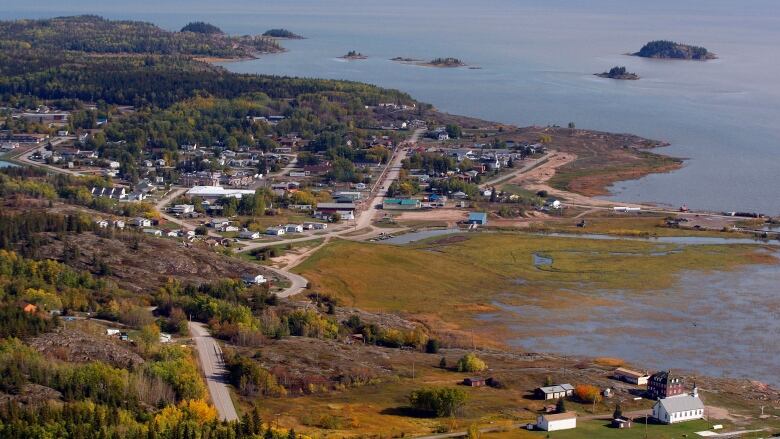Panel review of proposed oilsands mine concerns environmentalists, Indigenous community
The proposed mine might make it more difficult for Canada to hit Paris Accord targets

The decision by a federal-provincial review panel that a proposed oilsands mine is in the public's interest has left some Albertan organizations with concerns about the possible effects on Indigenous culture and the environment.
When Nikki Way, senior analyst with the Pembina Institute, first heard the Canadian Environmental Assessment Agency had recommended the Frontier mine project move forward, with several dozen conditions, she was underwhelmed.
"We're disappointed to not see any conditions that protect Canadians from future liability of a project like this," said Way.
"I think the point that we are concerned about is because there is so much that could happen, the panel should recognize that oil demand is not necessarily given the trajectory that has occurred in the past."
Teck Resources Ltd. is proposing the $20.6-billion Frontier mine be built 100 kilometres north of Fort McMurray, near Wood Buffalo National Park.The project's total capacity would be 260,000 barrels of oil a day and Teck has said it aims to start producing oil in 2026.
In its 1,300-page report the panel said there would be "significant adverse" effects to Indigenous people and the environment, but the project would be in the public interest.
The panel's report includes several dozen recommended conditionsfor Teck and the federal and provincial governments.They include mitigating harm to wildlife, monitoring pollutants and taking feedback from nearby First Nations into account.

The report said that mine "may make it more difficult to achieve Canada's targets and commitments under the Paris Accord," but that is beyond the scope of the panel's review.
Way said that was a mistake.
"We have significant reductions we need to make," said Way.
Considering the Paris Accord objectives outside the scope of the review is "potentially undermining Canada's commitment to achieving its climate goals," she said.
She said Pembina supports business development but she was hoping to see more concrete solutions for mitigating environmental damage.
The report said the Frontier project will destroy 14,000 hectares of wetlands. The panel recommended requiring Teck to conduct wetland reclamation research as part of its reclamation plan.
Over the 41-year lifespan of the mine, the federal government could expect to collect $12 billion in taxes, while Alberta could get $55 billion and the municipality would get $3.5 billion in taxes.
It would bring one of the largest new toxic tailing lakes in the province's history.- Mike Hudema, Greenpeace campaigner
Way questions whether Canadians will see those benefits.
"I think there's a risk that we should take seriously that a project like this may not truly be economic throughout its whole life, and there's a risk that Canadian taxpayers pick up the bill."
Impact on Indigenous rights
The panel's report also raised concerns for the Mikisew Cree First Nation.
"The project will have significant adverse effects on our rights, even with Teck's mitigation measures," said Melody Lepine, director for government and industry relations with the Mikisew Cree First Nation.
"There's still a lot of work for government and Teck to do before decisions are made," Lepine said.
The panel report has been handed over to the federal minister of environment. The federal cabinet has until February 2020 to make a decision on whether to approve the project.
Until that decision is made, Lepine said she wants to consult with the federal government about mitigating damage to Mikisew Cree First Nation culture and traditional territory.
"We have a short window of opportunity."

She said the First Nation's major concerns are linked to the mine's possible impact on water quality, bison and traditional land uses.
"It's up to the government in this case to deal with those project impacts that go beyond site specific."
Greenpeace said the panel report was "profoundly disappointing."
"In this climate, the last thing we should be doing is approving the largest tar sands mine in history and that's exactly what the regulators are recommending," said Mike Hudema, a climate and energy campaigner with Greenpeace.
He said it would produce millions of tonnes of new emissions, and it would have a tremendous impact on the land and water.
"It would bring one of the largest new toxic tailing lakes in the province's history and it impacts the people and communities as well."
He encouraged the federal government not to approve the project.
"This should be a very, very easy decision for the government to make," he said.
Teck Resources Ltd. declined a CBC request for an interview.
In an email, the company said the future of the project will depend on the review of the panel's report, the federal government's decision and market conditions.












_(720p).jpg)


 OFFICIAL HD MUSIC VIDEO.jpg)
.jpg)



























































































